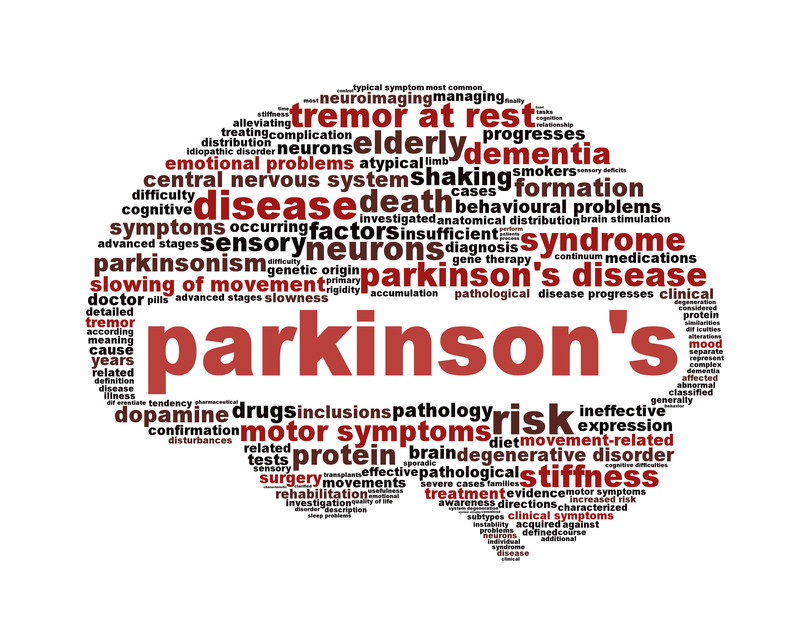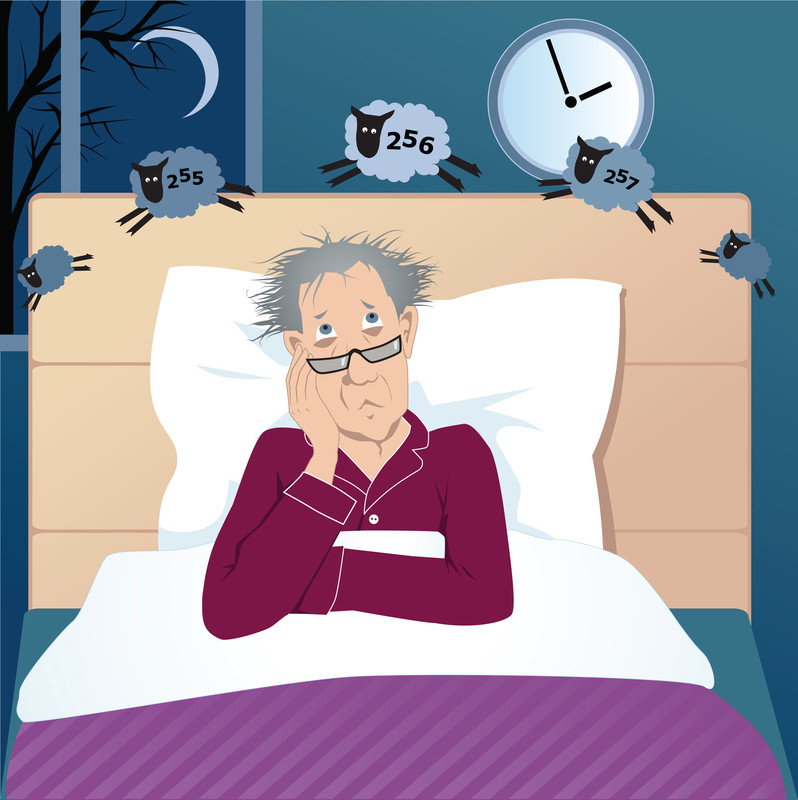| |
Oral Antiparkinsonian Drugs
|
 |
Parkinson’s disease
|
Parkinson's disease is a progressive disorder of the nervous system that affects your movement. Young adults rarely experience Parkinson's disease. It ordinarily begins in middle or late life, and the risk increases with age. People usually develop the disease around their sixties or older. Men are one-and-a-half times more likely to get Parkinson’s disease than women.
|
The symptoms of Parkinson’s disease may vary from person to person. However, symptoms often begin on one side of your body and are usually related to movement. Well known symptoms of Parkinson’s disease related to movement include tremor (involuntary shaking of particular parts of the body, usually begins in a limb) which is worse at rest, rigidity (muscle stiffness of limbs and joints which limit the range of motion) and bradykinesia (physical movements become very slow). Other symptoms unrelated to movement include depression, daytime sleepiness, difficulties in swallowing and speech problems.
Parkinson’s disease is caused by the gradual break down or death of certain nerve cells in the brain. This leads to a reduction in the amount of a chemical called dopamine in the brain. When dopamine levels decrease, it causes abnormal brain activity, leading to various symptoms of Parkinson's disease.
|
 |
|
|
▲ back to top
Treatment used |
Although Parkinson's disease can't be cured, treatments are available to help reduce symptoms and maintain quality of life. These include supportive therapies such as physiotherapy, occupational therapy and psychological counselling that help you cope with everyday life, or medication to control your symptoms. Surgical procedures such as deep brain stimulation may be used under the direction of doctors.
Antiparkinsonian drugs are medicines used to treat the symptoms of Parkinson's disease. The majority of the registered antiparkinsonian drugs in Hong Kong are available in oral dosage forms e.g. tablets, capsules; while a few of them are presented in injectable forms and transdermal patches.
|
|
|
▲ back to top
Oral antiparkinsonian drugs |
Antiparkinsonian drugs consist largely of the use of dopaminergics or antimuscarinics in an attempt to restore the normal balance between dopaminergic and cholinergic activity. Drugs with different actions may be necessary to achieve optimum control of symptoms. The medications may include:
| 1. |
Levodopa: this drug is the most effective medication to control the symptoms of Parkinson's disease. It is absorbed by the nerve cells in your brain and is converted to dopamine. Levodopa is usually combined with a peripheral dopa-decarboxylase inhibitor such as benserazide or carbidopa. Dopa-decarboxylase inhibitors prevent the breakdown of levodopa in the gut, which allows effective concentrations of dopamine to be achieved in the brain with lower doses of levodopa, and also reduces side effects such as nausea and vomiting. |
| |
| 2. |
Dopamine agonists: they act as a substitute for dopamine in the brain and have a direct action on dopamine receptors. They are not as effective as levodopa in improving the symptoms of Parkinson's disease. However, they are less likely to cause muscle problems than levodopa and are used to treat early Parkinson’s disease. Examples include pramipexole, ropinirole, bromocriptine and cabergoline. |
| |
| 3. |
Monoamine oxidase-B (MAO-B) inhibitors: they block the effects of an enzyme called monoamine oxidase-B in the brain that metabolizes or breakdown brain dopamine. They are used as an alternative to levodopa for treating early Parkinson’s disease. Examples include selegiline and rasagiline. |
| |
| 4. |
Catechol O-methyltransferase (COMT) inhibitors: they prevent the peripheral breakdown of levodopa, by inhibiting an enzyme called catechol-O-methyltransferase (COMT). Adding a peripheral COMT inhibitor can therefore extend the duration and effect of levodopa in the brain, and allow lower and less frequent doses of levodopa. They are usually prescribed for people in later stages of Parkinson’s disease. Examples include entacapone. |
| |
| 5. |
Antimuscarinics: they have a weak antiparkinsonian effect compared with levodopa. They reduce tremor and rigidity but have little effect on bradykinesia. Antimuscarinic side effects, particularly cognitive impairment, occur frequently and can limit their use. Examples include orphenadrine and benztropine. |
| |
| 6. |
Amantadine: it is a weak dopamine agonist with some antimuscarinic activity. It has mild antiparkinsonian effects compared with levodopa. It may be used alone to provide short-term relief of symptoms of mild, early-stage Parkinson's disease, and may also be given with levodopa therapy during the later stages of the disease to control involuntary movements induced by levodopa. |
|
|
|
▲ back to top
Common side effects and precautions
Antiparkinsonian drugs
|
Common side effects
|
Precautions
|
| 1. Levodopa |
- Nausea
- Vomiting
- Lightheadedness
- Drowsiness
- Involuntary movements
- “On-off” effect if long-term use [sudden switch between being able to move (on) and being immobile (off)]
|
- Use with caution in patients with severe pulmonary or cardiovascular disease, psychiatric illness (discontinue if deteriorate and avoid if severe), endocrine disorders and in those with a history of convulsions or peptic ulcer
- Use with caution in patients susceptible to angle-closure glaucoma, and in hepatic or renal impairment.
- Avoid abrupt withdrawal
- Patient should be alert to the possible sedative effect and should not drive or operate machinery if they feel drowsy
|
| 2. Dopamine agonists |
- Nausea
- Vomiting
- Tiredness
- Dizziness
- Swelling
- Compulsive behaviours such as hypersexuality, gambling and eating
|
- Use with caution in elderly who are more susceptible to confusion or hallucinations
- Rule out cardiac valvulopathy with echocardiography before starting treatment with ergot-derivatives dopamine-receptor agonists such as bromocriptine and cabergoline
- Patients should be warned of the risk of sudden onset of sleep. They should not drive or operate machinery if they feel drowsy
- Hypotensive reactions can occur in some patients and if affected, they should not drive or operate machinery
|
| 3. MAO-B inhibitors |
- Nausea
- Headache
- Abdominal pain
- Dry mouth
- Gastrointestinal disturbance
|
- Avoid abrupt withdrawal
- Increased risk of hallucinations and muscle problems when used with levodopa
- Should not be taken with certain types of antidepressant, as the drugs can interact to raise blood pressure to dangerous level
|
| 4. COMT inhibitors |
- Nausea
- Vomiting
- Diarrhoea
- Abdominal pain
- Increased risk of involuntary movements
|
- Avoid abrupt withdrawal
- Concurrent levodopa dose may need to be reduced
- Should not be used in patients with phaeochromocytoma, history of neuroleptic malignant syndrome or rhabdomyolysis
- Should not be used in patients with hepatic impairment
|
| 5. Antimuscarinics |
- Dizziness
- Nausea and vomiting
- Constipation
- Rapid/irregular heartbeat
- Urinary urgency and retention
- Blurred vision
- Dry mouth
- Rash
|
- Use with caution in children and elderly
- Use with caution in patients with cardiovascular disease, prostatic hypertrophy, hypertension, psychotic disorders, pyrexia, and those who are susceptible to angle-closure glaucoma
- Use with caution in hepatic or renal impairment
- Should not be given to patients with myasthenia gravis and gastro-intestinal obstruction
|
| 6. Amantadine |
- Gastro-intestinal disturbances
- Anorexia
- Dry month
- Palpitation
- Lethargy
- Dizziness
- Purple mottling of the skin
- Ankle swelling
- Hallucination
|
- Avoid abrupt withdrawal Use with caution in elderly
- Use with caution in patients with congestive heart disease, confused or hallucinatory states and hepatic impairment
- Should not be used in women who are pregnant or breast-feeding
- Patient should be alert to the possible sedative effect and should not drive or operate machinery if they feel drowsy
|
|
|
▲ back to top
General advice on taking oral antiparkinsonian drugs
|
- Drugs improve most patients’ quality of life and the activities of daily living, even though they cannot cure Parkinson's disease nor prevent disease progression.
- Long-term use of antiparkinsonian drugs is usually necessary and abrupt withdrawal of the medication without medical supervision should be avoided.
|

|
- Good self-care can benefit patients enormously. Self-care includes things that you do to maintain good physical and mental health, prevent illness or accidents, and effectively deal with minor ailments and long-term conditions like having a balanced diet with regular exercise and adequate rest.
- Be familiar with the name and dosage of the antiparkinsonian drugs you are taking. Be cautious of their possible side effects.
|
|
▲ back to top
Communication with your doctor
|
|
- Patients of Parkinson's disease may have problems with sleep. Inform your doctor if you are tired in the daytime or have difficulty moving at night.
- Antiparkinsonian drugs can interact with other medicines. Inform your doctor of the medicines you are taking, including over-the-counter medicines, so they can assess whether an antiparkinsonian medicine is safe for you to take.
- Inform your doctor of your medical history, as some diseases may warrant special precautionary measures.
- Communicate with your doctor for the best treatment option. Your doctor will prescribe the most appropriate drugs for you after considering your condition and your response to the drugs.
|
|
 |
- Inform your doctor that you are pregnant or breast feeding as some of the oral antiparkinsonian drugs should not be taken by women who are pregnant or breast feeding.
- Seek medical advice immediately if you experience any symptoms or side effects suspected to be related to antiparkinsonian drugs. Your doctor may review your type of medication.
- Seek medical advice if your symptoms worsen or you have any concerns about the medicines you are taking.
|
|
▲ back to top
Storage of oral antiparkinsonian drugs
Oral antiparkinsonian drugs should be kept in a cool and dry place. Unless specified on the label, medicines should not be stored in refrigerators. Furthermore, drugs should be kept properly in places unreachable by children to prevent accidental ingestion.
|
|
▲ back to top
|
|
Acknowledgement: The Drug Office would like to thank the Professional Development and Quality Assurance (PD&QA) and Elderly Health Service for their valuable contribution to the preparation of this article.
|
|
|
|
|


